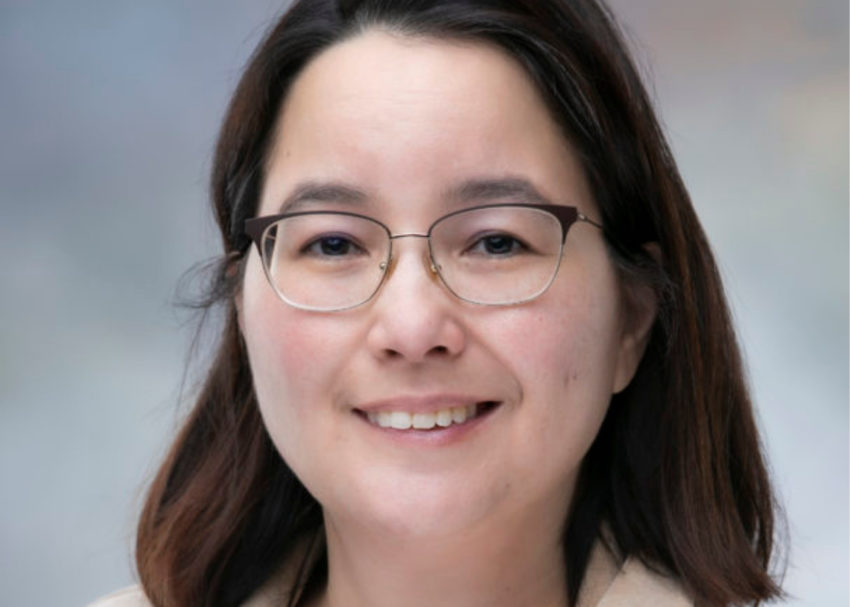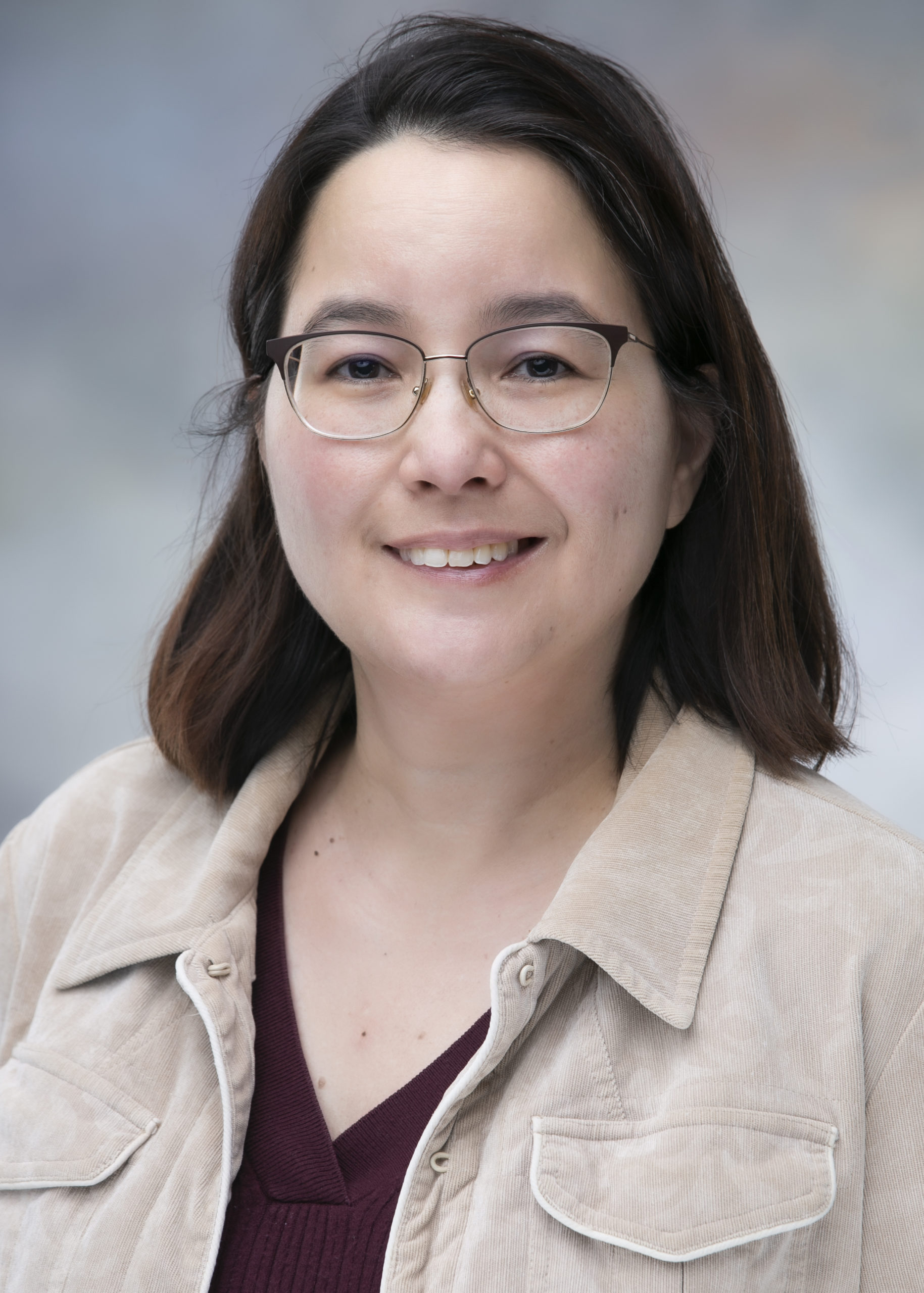
Share On Social!
Dr. Dorothy Long Parma hasn’t had the easiest career path.
She’s struggled with depression throughout her time in medical school, residency, and her current work as an assistant professor at the Institute of Health Promotion Research (IHPR) at UT Health San Antonio.
Although her depression made it very difficult at times, Long Parma successfully completed her degree and is now an expert health disparities researcher focusing on risk factors for gastric cancer.
“I really like working at IHPR. I’ve worked here as a student, and then as faculty and it’s been a great supportive environment. Amelie [Ramirez, the director of IHPR] has always been very understanding about me working at the level that I can work,” Long Parma said.
From the Philippines to Texas for College
Originally from the Philippines, Long Parma started her path to become a doctor at the University of the Philippines with a bachelor’s degree in biology in 1992.
However, she ended up transferring to University of Texas at Austin (UT Austin) because of technical requirements to enter medical school.

“I transferred to UT Austin after about three semesters to finish my BA in biology, because you need to go to a Canadian or American college to get into med school. That didn’t used to be the case, but apparently it’s gotten more competitive,” Long Parma said.
She finished up her degree at UT Austin, but because of the timing of her transfer, she was delayed in taking the MCAT, the standard exam for medical school acceptance, and was forced to take a gap year.
During her gap year, Long Parma participated in a National Institute of Health (NIH) fellowship in Bethesda, Maryland, for recent college graduates applying to medical school.
She then applied and was accepted into a combined MD/PhD program at UT Health Science Center at Houston in 1997.
Being Diagnosed with Depression in Medical School
Things were going smoothly for Long Parma in the beginning of her joint program.
“It went pretty well for a while. The way they did it at that school was you did the first three years of medical school, which includes the third clinical year, and then you jump out and switch to the PhD stuff where you take your classes and find your lab and work on your thesis and then you come back and finish the fourth year,” Long Parma said.
But six months into her lab work, Long Parma was diagnosed with clinical depression.
“At first, I thought I was just having problems with the lab, that I couldn’t think of a thesis project. But my reactions to it were a little bit over the top compared to the issue at hand. And so I went to the school clinic and they put me on an anti-depressant and then I also started looking around for another lab that was doing stuff that I found more interesting,” Long Parma said.
She thought her problems would be solved when she found a new lab working on developmental neuroscience, which appealed to her interest in pediatrics.
“I moved to that lab. All was well. I felt better, so I stopped taking my anti-depressant meds. And about six months later I had a bigger breakdown, which required hospitalization,” Long Parma said.
Long Parma was hospitalized for 10 days.
After that, she immediately returned to her studies, determined to finish her PhD.
“It was really hard because my brain wasn’t quite working right yet. But I was able to get through my candidacy exam and I had the permission to start working on my thesis,” Long Parma said.
She ran into more issues when the chair of the department fired her boss, which meant her whole lab was fired, hurting her chances of finishing her PhD.
“At that point, I was kind of faced with a choice. I could find another lab that was doing something like what I was doing, which did not exist, or I could switch gears completely and do something else and start over. Or I could just go back to medical school before I forgot everything that I already learned, which is what I ended up doing,” Long Parma said.
Back in medical school, Long Parma struggled with overnight clinical rotations.
“That was pretty tough. The clinical rotations for medical school, a lot of them require overnight call every fourth night, and sleep deprivation is a big trigger for depressive episodes. So it was hard, but I managed to graduate. It only took 10 years,” Long Parma said.
In 2007, Long Parma completed her medical degree and graduated from UT Health Science Center at Houston.
Switching from Residency to Public Health Research
After graduating from medical school, Long Parma moved to San Antonio to start her residency in family medicine at UT Health San Antonio.
The start of her residency was delayed because Long Parma had to meet with the Texas Medical Board to prove she was competent due to her depression diagnosis.
“I had to basically convince them that I was competent to start residency training. This is what happens with people that have like a history of drug use and mental health issues. I went to that, and that went well, but I didn’t start residency ‘til September because of the delay from meeting with the Board,” Long Parma said.
Once in residency, Long Parma still experienced depressive episodes.
“The worst I ever had was when I was on call for family medicine and I had to go home at midnight because I couldn’t think straight and I had to have my husband come pick me up,” Long Parma said.
She applied for ADA accommodations to be on call less frequently and allow her to go home early to recover from sleep deprivation.
“All that stuff was approved on paper but in practice, we didn’t have enough residents to really cover everything, so it didn’t really happen. So it didn’t work out. And my contract wasn’t renewed for the final year,” Long Parma said.
She wasn’t able to finish her residency, which meant she couldn’t become a practicing physician.
But the upside was that while in residency, Long Parma found her interest in public health research.
“I had a couple of mentors who had Master’s in Public Health and they were encouraging me to get one. While I was working out the last few months of my residency, I applied for a position at the school of public health here [at UT Health San Antonio],” Long Parma said.
She started her MPH at UT Health San Antonio in 2009, where she worked on projects related to childhood obesity interventions and was eventually hired as a student associate.
Working at IHPR
As she gained more experience at IHPR in the Department of Population Health Sciences, Long Parma was brought on as a faculty instructor in 2011. She then finished her MPH in 2012.
She’s worked on projects with other faculty members, like Dr. Daniel Hughes, on breast cancer survivorship and physical activity interventions, and Dr. Amelie Ramirez, on liver cancer research.
One project she worked on was based on a suggestion from the former director of the Mays Cancer Center, Dr. Ian Thompson.
“He suggested that I do a pilot study looking at Helicobacter pylori infection in his prostate cancer cohort. It was really big, and they had all the blood samples, all the survey data. I applied for pilot funding through Redes en Accion, which is Amelie’s national cancer project. And I got funding to do the study,” Long Parma said.
H. pylori, a stomach bacterium, has now become the center of her work.
In the study, Long Parma looked at the blood samples and collaborated with other departments see if there was a difference in H. pylori prevalence between white men and Latino men in the sample, which she discovered there was.
She also found that high Body Mass Index (BMI) was a strong predictor of being at risk for H. pylori infection.
“The data from that study was the preliminary data I used to write my career development award, and that went through several iterations,” Long Parma said.
Studying Gastric Cancer Through Department of Defense Grant
After several grant writing workshops and applying multiple times to several different national grants, Long Parma was awarded a Department of Defense career development award in 2018.
“The Department of Defense every year chooses topic areas that they’re interested in, and one of them is stomach cancer. I applied and didn’t get it the first time, but I did get it the second time,” Long Parma said.
Now, Long Parma is in the third year of the project.
“The project is basically looking at gaps in gastric cancer risk factors with a mixed methods approach. Part of it is a secondary data analysis to collect data from UHS and UT Health’s Electronic Medical Records to look at basically all the diagnoses related to H. pylori, like gastric ulcers, gastritis, intestinal metaplasia all the way up to gastric cancer. Basically looking at things like prescription practices, what kinds of antibiotics people have been prescribed for H. pylori and referrals, how long it takes them to get referred for example, if they are diagnosed with cancer,” Long Parma said.
For the qualitative aspect, Long Parma interviews people involved with the process to be diagnosed with gastric disorders to identify barriers.
“So far, I’ve interviewed all the providers and administrators – primary care, GI, and oncology. And I’ve just started interviewing patients, so far, just oncology patients. And yeah, I’ve identified some barriers. But I’m still working on the data analysis for the qualitative data,” Long Parma said.
While she’s waiting on the data extraction to finish up, Long Parma is writing papers on other projects.
She also is helping with the Dr. Ramirez’s new Avanzando Caminos project, which explores the Latino cancer survivorship experience, and working on liver cancer grants with Dr. Ramirez.
“It’s basically trying to determine, building on the liver cancer case control study, looking at what risk factors and what disparities there are,” Long Parma said.
Future Research Areas
In the future, Long Parma wants to expand her research with gastric cancer to other GI cancers.
She also wants to help GI patients and providers by improving the process for diagnoses.
“The next thing I want to do after this grant is come up with an algorithm, like a clinical decision support tool, that providers and patients can use to streamline the process. Because I’ve found from interviewing providers, just the oncologists, it’s very involved and convoluted. From being diagnosed with gastric cancer to getting treated, it’s not at all simple. It’s very easy for patients to get lost or fall through the cracks,” Long Parma said.
Long Parma also wants to improve the screening process for gastric cancer.
“There’s not a gastric cancer screening guideline or standard. We have colonoscopies for colon cancer, pap smears and mammograms for breast and cervical. There’s nothing for gastric cancer. People just go by symptoms,” Long Parma said.
There isn’t a screening program for the bacteria she studies either because the U.S. is considered a low-risk area for H. pylori.
“The problem is there are populations within the U.S. that are high risk, and so they’re the people that tend to get gastric cancer and H. pylori is the main risk factor for it, even though it takes years to develop. I’m thinking we need a little bit more of a structured approach to identifying it and treating it and making sure it stays eradicated, to try to make a dent in in the gastric cancer prevalence, which is higher in Latinos and in South Texas,” Long Parma said.
Long Parma enjoys her work at IHPR and appreciates the collaborative and supportive environment.
Here, she can keep working to help cancer patients and also speak up for others experiencing mental health issues.
“I’ve come to a level of acceptance of it, it doesn’t bother me,” Long Parma said. “And I think that talking about it helps other people who deal with those sorts of things.”
By The Numbers
142
Percent
Expected rise in Latino cancer cases in coming years
This success story was produced by Salud America! with support from the Robert Wood Johnson Foundation.
The stories are intended for educational and informative purposes. References to specific policymakers, individuals, schools, policies, or companies have been included solely to advance these purposes and do not constitute an endorsement, sponsorship, or recommendation. Stories are based on and told by real community members and are the opinions and views of the individuals whose stories are told. Organization and activities described were not supported by Salud America! or the Robert Wood Johnson Foundation and do not necessarily represent the views of Salud America! or the Robert Wood Johnson Foundation.



